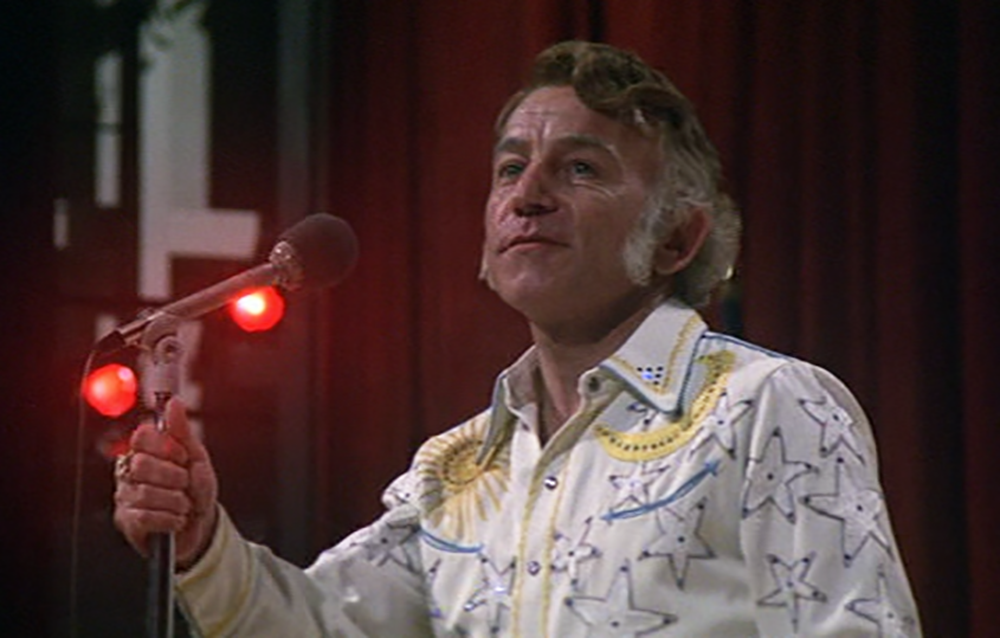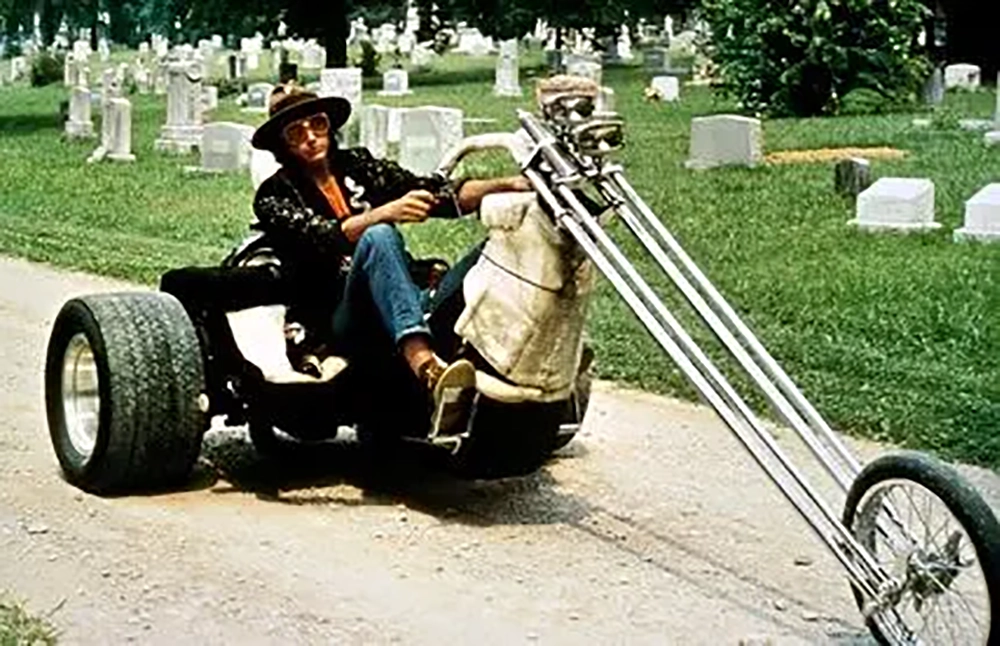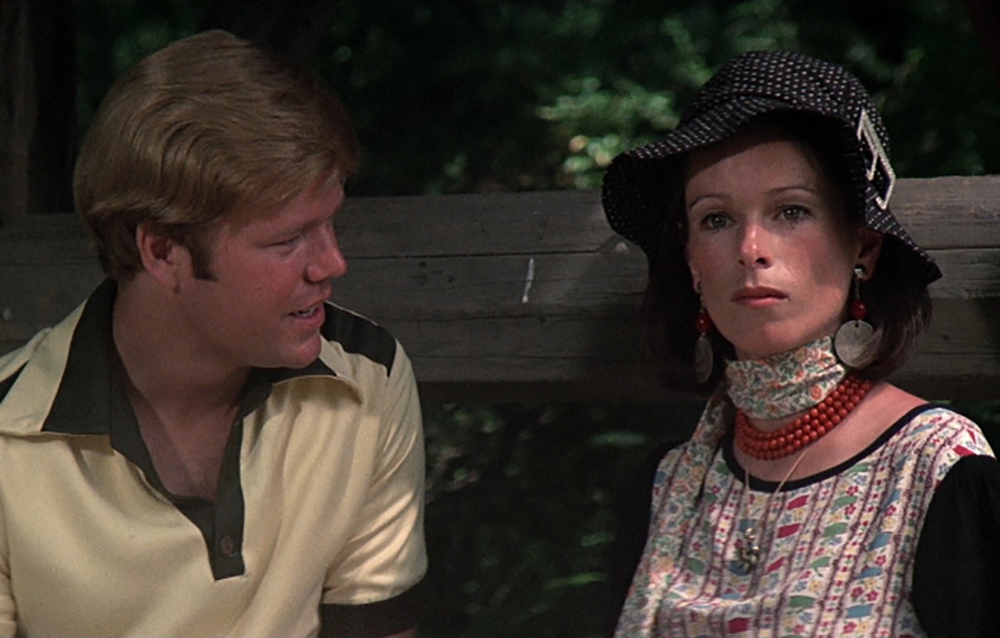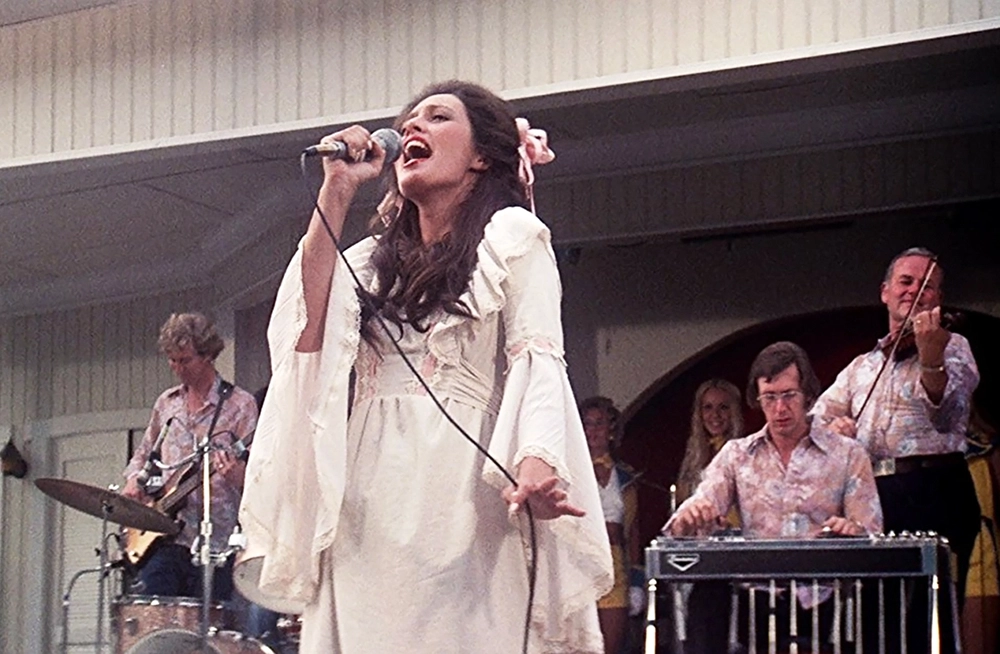In December 2022, ‘Sight & Sound’ released its once-a-decade ‘Greatest Films of All Time’ ranking. This was the year the list blew up, with unprecedented changes throughout the entire Top 100, including at the top. With this essay series, we’re exploring the films that were new to the Top 100, and those that were bounced from the list. The goal is to analyze — and enjoy — each film, considering its current or former position in the canon, stepping back from the hot takes and manufactured controversies to evaluate a film on its merits. The first essay in our series looked at a new entry, Charles Burnett’s “Killer of Sheep” (1977). Next up is Robert Altman’s “Nashville” (1975), which fell out of the Top 100, dropping more than 40 spots from its 73rd ranking in 2012, tying at 114th in the 2022 poll.
Watching Robert Altman’s “Nashville” doesn’t mean just absorbing all 160 minutes of the film in its grand ol’ glory. The experience unearths an insatiable appetite to learn more about how Altman and screenwriter Joan Tewksbury could have pulled this off, bringing together an epic cast on a slim budget, unfurling a universal story about rivalry, loss and broken promises in the country music capital of the world. Lauded as an instant classic three months before its theatrical run (Pauline Kael: “an orgy for movie-lovers”), “Nashville” still shines brighter than Haven Hamilton’s belt buckle, no matter how many steps it has descended down from the cinematic pantheon. Featuring twenty-four main characters (the actors wrote most of their own songs), “Nashville” is a sprawling, punch-drunk opera whose massive reach matches its ambition, mourning and cheering those American virtues of life, liberty, and the reckless pursuit of failure.
A Soundtrack that Explores its Characters
The eclectic, homemade soundtrack tugs at viewers and penetrates these characters. Considering the music apart from the film gives a sense how intricate the overlapping plots and character arcs are, refuting — or at least challenging — the notion that so much of it was improvised. True, Altman encouraged improvisation, but it feels in the vein of how Mike Leigh plans out his films, with key players settling into their characters off-screen so that it gels effortlessly on-screen. Despite “Nashville’s” size, the film never lacks cohesion, and the songs are a cheat sheet revealing the gulf between reality and imagination. The patriotic zeal of a Hamilton (Henry Gibson) song, for example, uncovers not his political ideology but the contradictory nature of this star’s public and private life. Same for the self-absorbed folk-singing hunk Tom (Keith Carradine) whose eyes wander with the camera when he croons, “I’m Easy.”
But Altman is not there to serve as judge or jury for these twenty-four dreamers, believers, and schemers. The rational tussles with irrational from start to finish, with stubborn delusion prevailing. Hamilton sings his anthem to fatherhood and monogamy, “For the sake of the children, we must say goodbye,” while his wife’s in Europe and mistress (Barbara Baxley) is backstage. Waitress Sueleen Gay (Gwen Welles) is determined to be a star, no matter how many times her coworker Wade (Robert DoQui) tells her to give it up (“You’re not a singer … they’ll kill you!”). And in a scene when she’s finally performing, it’s for a group of sweaty men in a smoky room, who boo and jeer her singing. In response, Sueleen is pressured into an impromptu strip tease, a heartbreaking turn that anticipates the tragic outcome that will befall two revered stars on stage the next day.
Did Gary Busey Write the Best Song?
At a political rally, the country idols Barbara Jean (Ronee Blakely) and Hamilton, are shot, and the hot-mess hero-on-the-spot Albuquerque (Barbara Harris), previously on the run from her husband (Bert Remsen), steals the show. She belts, “It Don’t Worry Me” with extraordinary brio, imploring the stunned crowd to join her while Altman pans back to survey the crowd gathered at the city’s parthenon. Then, the camera shoots up to the sky, scanning away from a giant American flag in one of the great stage exits in film history. Far from ending on a high note, the remaining spectators freeze, stuck in a haze of disbelief that means the only logical move is to escape, so Delbert Reese (Ned Beatty) yanks his wife Linnea (Lily Tomlin) from her gospel choir, and his colleague, the dapper and shrewd John Triplette (Michael Murphy) turns away, defeated.

For the rest of us, it’s impossible to bow out and move on. We need to hear, read and see more. Oh, to be alive to witness the galvanized critical community, in a contest of superlatives: Pauline Kael’s five-page New Yorker rave (“A radical, evolutionary leap,”) after seeing a 3-hour rough cut, Village Voice critics Molly Haskell and Andrew Sarris in an off-kilter “duet,” with Haskell praising it as “a Chaucerian musical pilgrimage whose Canterbury is Nashville,” and Sarris calling it “the most exciting dramatic musical since ‘Blue Angel.'” And the long tail of gossip and trivia: Louise Fletcher cast away from her role as Linnea Reese, only to win ‘Best Actress’ for her unforgettable Nurse Ratched in “One Flew Over the Cuckoo’s Nest.” Lily Tomlin, as Reese, would bag a ‘Best Supporting Actress’ nomination in her first screen role. Also: Gary Busey wrote one of the best songs?
‘Nashville’ Casts a Wide Shadow
Still, like so many Altman films, the cultural and critical discourse didn’t translate to commercial or awards-season success. It was Altman’s biggest box-office hit since “M*A*S*H” (1970), but it earned a reported $10 million to “M*A*S*H’s” $80 million. The two films did, however, win the same number of Oscars: one. Keith Carradine took home the gold statue for ‘Best Original Song,’ (“I’m Easy”) while at the 1976 ceremony Altman lost in an embarrassingly rich ‘Best Director’ category (Federico Fellini, the winner Milos Forman, Stanley Kubrick, and Sidney Lumet) and arguably the most formidable ‘Best Picture’ race in history (“Barry Lyndon,” “Dog Day Afternoon,” “Jaws,” and the winner, “One Flew Over the Cuckoo’s Nest”). Tewksbury’s wild, inventive script, based on her own experience visiting the city (which, like “Nashville,” begins with multi-car highway pile up), didn’t even earn a nomination.
And yet, “Nashville” casts a wide shadow. True, they don’t make ‘em like this anymore, but Altman’s influence splays across modern film and TV. In his early-career, mosaic triumphs “Boogie Nights” (1998) and “Magnolia” (1999), Paul Thomas Anderson said that he was just “ripping Altman off.” The anti-establishment, anti-genre work of Kelly Reichardt is a direct descendent of Altman’s, especially her “First Cow” (2019), which centers a doomed business partnership at the turn of the Century, riffing on “McCabe & Mrs. Miller” (1971). Reichardt even cast Altman stock-company regular René Auberjonois for a second time, credited as “Man with Raven,” a possible wink to his madcap ornithologist in Altman’s “Brewster McCloud” (1970). The scathing class satires from Ruben Östlund (“Triangle of Sadness”) and Mike White (“White Lotus”) ooze Altman, that magic blend of humor and cynicism, of characters’ tenderness, deception and self-hatred, punctuated with sad/funny/haunting finales.
A Middle Finger to America? Or a Call for Empathy?
For all the heightened drama and political intrigue that “Nashville” concocts, much remains unresolved. But, how could it not? The cycle of disappointment, hope, and success spins and will keep spinning. Still, Altman dishes out scorn and glory in appropriate proportion and passes only a modest amount of judgment on the characters (the narcissistic philanderer Tom, Geraldine Chaplin’s antic BBC reporter Opal) who, in a lesser movie, would be villainized in a cartoonish manner. And the hypocrisy of those who are too pure (Linnea’s a loving mother of two deaf children, a vibrant gospel singer, and unfaithful to her husband) is exposed. In those instances, Altman isn’t out to admonish these people or us for empathizing with them, he’s complicating or subverting a staid message that there are only good and bad people, winners or losers. Not so in Altman’s America, or actual America.

Released in June 1975, “Nashville” was the height of Altman’s legendary 1970s hot streak, which began with “M*A*S*H,” the irreverent Palme d’Or winning coup. Next was the dreamy, devastating anti-Western (“McCabe”), some trippy psycho horror (“Images”) and two spins on Old Hollywood tropes, the whodunnit (“The Long Goodbye”) and the lovers-on-the lamb tragedy (“Thieves Like Us”). This range could baffle, frustrate, or delight even the staunchest supporters, and Kael herself wrote after “Images” that Altman seems to alternate between success and failure, going “one on, one off.” But that’s what makes each film so rich, and the rabbit holes so addictive. No concept or “making of” documentary is the same, although the constant is a push-and-pull between the artist, his collaborators, and the studio executives. No wonder Altman abandoned the system entirely, putting out a string of play adaptations in the 1980s before returning the ‘90s with two stunners.
‘Nashville’ as a Predecessor to Modern Filmmaking
When Altman roared back with “The Player” (1992) and “Short Cuts” (1993), his reputation as an actors’ director was intact, and those stellar ensembles and plot complications tie back directly to the “Nashville” experiment. Plots unfold without the characters realizing they’re part of some grand narrative, and the audience understands more than anyone that everyone is doomed. In “Nashville,” tension thickens with the fervor of Mary (Cristina Raines) piercing the lounge with Busey’s “Since You’ve Gone,” aimed at both her husband Bill (Allan Nichols) and lover Tom (Carradine). The escalating sense of dread coming at the end doesn’t diminish the payoff of each individual scene, with Altman deftly blending conventional melodrama (cheatin’ hearts, political violence) with bittersweet redemption. Linnea meets, then dispatches Tom on her own terms, and when an injured Hamilton hands the mic to Albuquerque, she answers the call.
All of these strivers share such an individualistic zeal that “Nashville” can come off as both a love letter to ambition and a middle finger to America, decrying the crooked system while saluting its occasional gift for inspiration. Certain in-jokes risk poking fun at these personalities, although the campaign sloganism from Hal Phillip Walker (Thomas Hal Phillips, never seen in the film) might as well have been cut-and-pasted from recent election cycles. The bland and catchy inanity wins over the general public and media, with one TV anchor agreeing with Walker’s statement that, “Christmas does smell like oranges.” Walker’s van ambles through the city spouting platitudes through megaphones, while his operatives on the ground (Delbert and John) recruit talent for fundraising events, including the ill-conceived show which humiliates Sueleen, and the rally at the end, which leaves one star dead and the entire nation wounded.
A Film that Persists Through the Ages — Despite its ‘Top 100’ Fall

Midway through the film, many of the film’s characters (even Eliot Gould, an Altman regular makes an appearance, as himself) gather at Hamilton’s cozy cabin in the woods for a party. In one of Opal’s many rambling monologues, she declares the setting to be “pure unadulterated Bergman.” And that line, an improvised zinger which strikes directly at its arthouse target audience, could be the best way to summarize “Nashville:” it’s pure, unadulterated Altman, his most perfect imperfection, a titanic achievement whose lyrics still echo nearly a half century after the orgy started. Altman films are a genre unto themselves, and while “Nashville” inspired a dedicated niche following, the most loyal, winning homages come from Altman’s own late-career films.
Few have tread Altman’s windy path and inimitable style, so perhaps it shouldn’t shock that his films are conspicuously absent from canon conversation. His one film in the Sight & Sound Top 250 is one fewer than protege Paul Thomas Anderson, and exactly the same as personas non grata Woody Allen and Roman Polanski. Maybe fans can’t settle on a favorite (Director Hirokazu Koreeda selected “Short Cuts” in his Top 10 list), or the voting public consider him a New Hollywood outsider, starting in TV when boys wonder Scorsese, Coppola, etc. emerged from prestigious film schools. No matter how far “Nashville” falls out of favor, it’s harder to shake than a Carradine jingle. As Kael wrote, “Nashville” “is a pure emotional high, and you don’t come down when the picture is over, you take it with you.” All that praise, for a first draft! Wait till she sees the final product.
The next essay in this series will be on Barbara Loden’s Wanda (1970) new to the Top 100 at no. 48.


